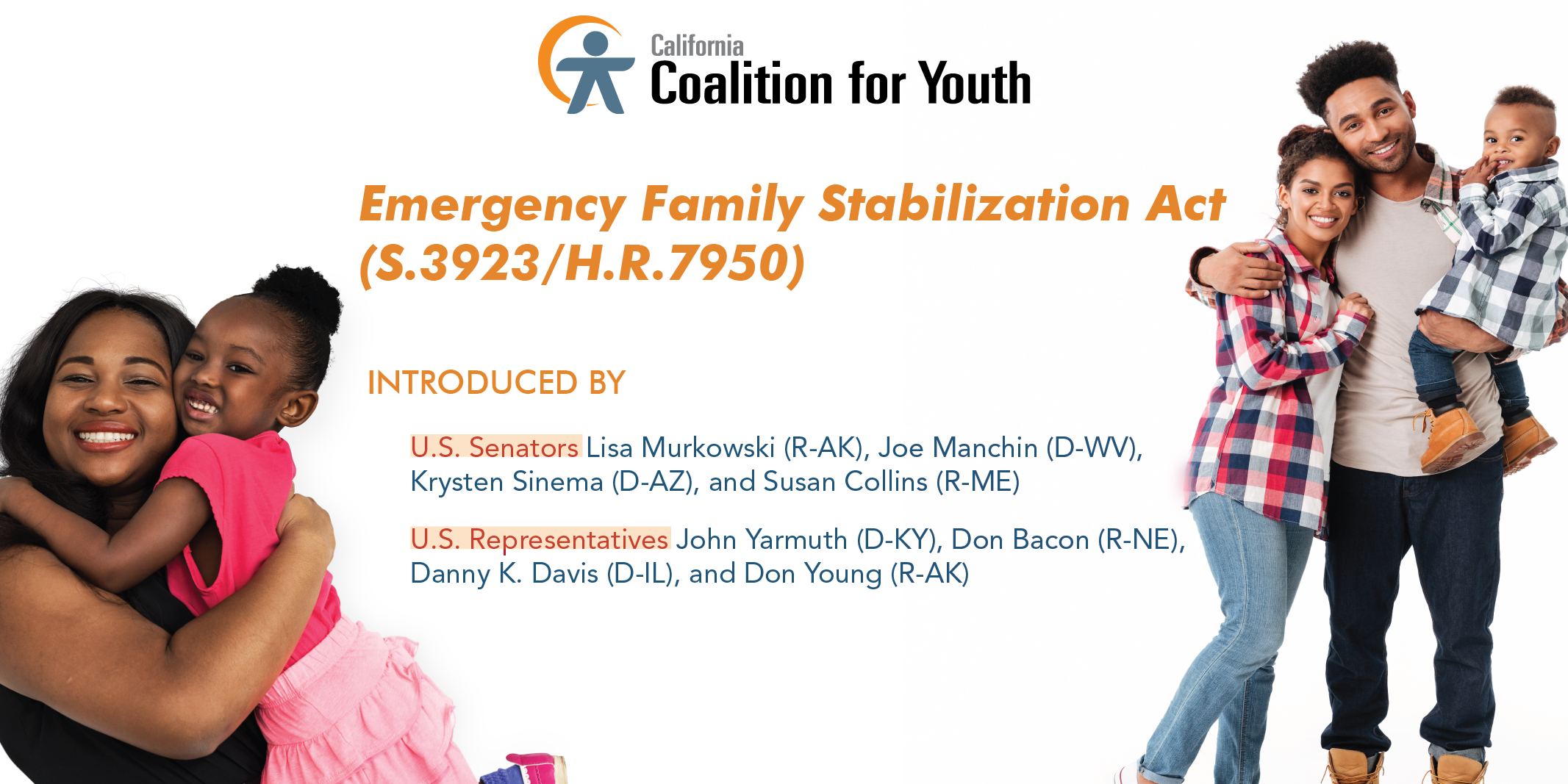
This past Friday, August 7, U.S. Representatives John Yarmuth (D-KY), Don Bacon (R-NE), Danny K. Davis (D-IL), and Don Young (R-AK) introduced the bipartisan Emergency Family Stabilization Act, H.R. 7950 (EFSA). This legislation provides flexible funding directly to community-based organizations to meet the needs of children, families, and unaccompanied youth who are experiencing homelessness during the COVID-19 pandemic. Funds may be used for a wide range of housing, health, education, and safety-related activities.
The House bill introduced today is the companion bill to S. 3923, introduced in the U.S. Senate on June 10 by U.S. Senators Lisa Murkowski (R-AK), Joe Manchin (D-WV), Kyrsten Sinema (D-AZ), and Susan Collins (R-ME).
The House version of EFSA contains the following additions:
- Provides $2 billion in flexible funding directly to community agencies (including local educational agencies) to respond to the emergency needs of children, youth, and families experiencing homelessness in the wake of the coronavirus, using the broader definition of homelessness. (The Senate bill provides $800 million.)
- Ensures that at least one agency in each state receives a grant.
- Provides that in awarding grants, special consideration is given to meeting the needs of pregnant women, pregnant and parenting youth, children under age 6, children with disabilities, families experiencing domestic violence, survivors of sexual assault or human trafficking, LGBTQIA individuals, and racial and ethnic minority populations.
- Requires the agency that administers the funds – the Administration of Children and Families (ACF) at the U.S. Department of Health and Human Services (HHS) — to submit a Report to Congress summarizing data gathered from grantees.
The California Coalition for Youth’s Key Takeaways
|
|
Summary:
“Family Stabilization Agencies” would be limited to:
· Children under 6 experiencing homelessness;
· Unaccompanied youth under 18 experiencing homelessness;
· Unaccompanied transition aged youth (between 18-24) experiencing homelessness;
· Families experiencing homelessness;
· Survivors of dating or domestic violence
Grants are to be awarded no more than 45 days after enactment for current ACF grantees, and 130 days for not current grantees.
Awards:
Authorized Activities:
Please note that in the authorized $2 billion appropriations, there is no mention of the size of awards to individual Family Stabilization Agencies.
|
